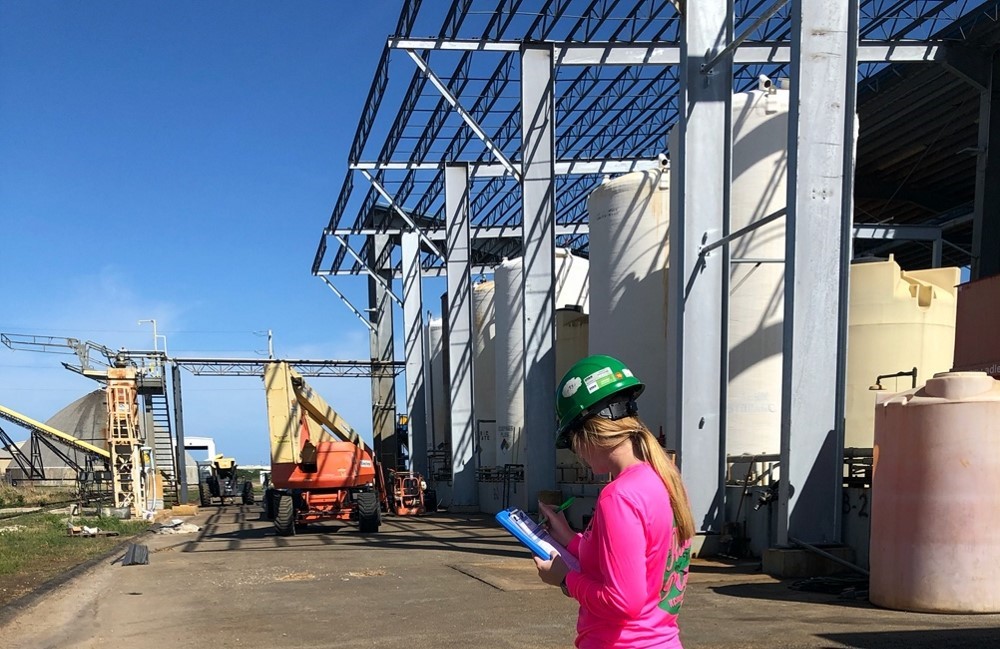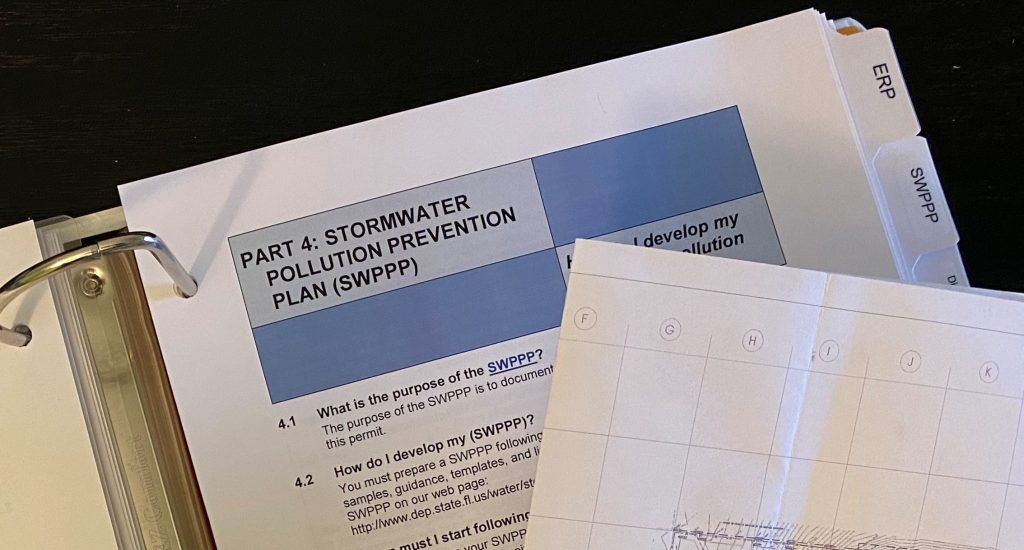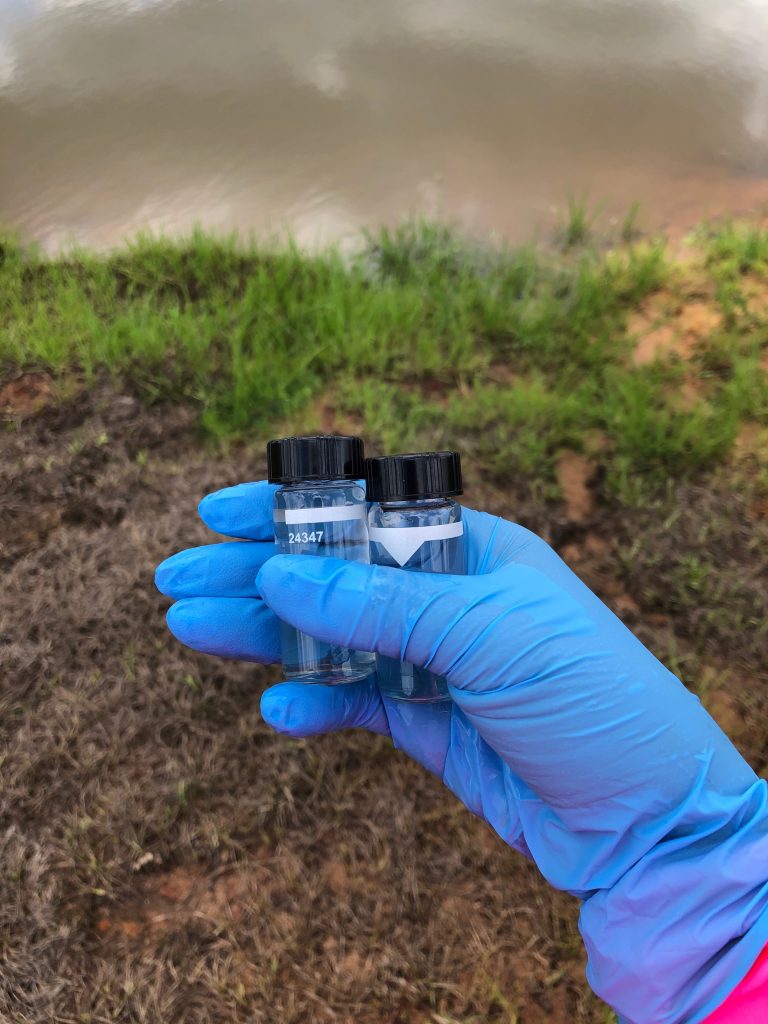
A quality, well though-out SWPPP is the road map for an efficient inspection. A certified and trained Florida Stormwater Erosion and Sedimentation Control Inspector (FSESCI), help industrial clients deliver and maintain accountability on the SWPPP’s defined exceptions. Performing stormwater compliance and regulatory inspections that are clearly laid out by a well-defined SWPPP will ensure the NPDES Generic Permit can be managed effectively.

There are three types of Inspections described under the MSGP for industrial sites. Firstly, a quarterly routine facility inspection to review all materials and activities that may have exposure to stormwater. This routine quarterly inspection involves checking the facility for BMP failures and potential pollution. Secondly, a quarterly visual monitoring inspection should be performed by collecting water samples at a discharge location to inspect for unusual smells or visual characteristics. Thirdly, there should be an annual comprehensive site Inspection that may include employee training, updating the SWPPP, and possibly a (DMR) Discharge Monitoring Report performed depending on the permit timeline. In some cases, recommendations have been made to develop a higher frequency inspection schedule due to a particular site’s unique condition or circumstance. It is also important to note, performing inspections at times during an actual rain event will allow an inspector to visualize conditions in real-time.
Here are some common problems found during inspections of industrial sites.

- A SWPPP is a site-specific plan and should address only for the facility it was designed. Many times, Industrial sites have a generic SWPPP, with standard defined BMPs. The BMP’s do not correlate with the specific site in question.
- Effectively Implementing the required BMP’s set out and described in the SWPPP.
- Inspecting BMP’s and performing quarterly quality control, water sampling, and maintenance.
- Site staff not adequately informed or trained. They are unclear to why the facility needs a stormwater management plan and how to effectively contribute to the plan’s success.
- Consistently, industrial clients struggle with proper Inspecting, monitoring, and actual reporting compliance results on a timely basis.
Due to these common issues, It is increasingly becoming advantageous for industrial clients to outsource stormwater management. We have found clients appreciate the help and they discover stormwater management becomes less of a burden. Having an expert compliance consulting company who can inspect, interpret the data, monitor, track compliance, and manage any site-specific needs is becoming a necessity in today’s fast paced economy.
In conclusion, Industrial Clients having a company manage environmental compliance allows them to refocus on what they do best. When facility staff must suddenly shift and react to compliance needs, it diminishes their ability to stay focused on their business. KCI is all about helping clients regain flexibility and confidence towards what they do best – run their business. Give us a call at (888) 346-7779.



